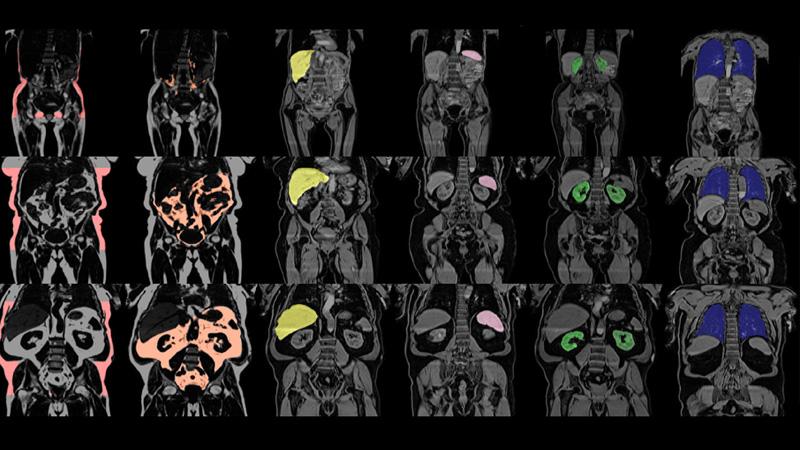A team of researchers from the University of Westminster including Professor Louise Thomas, Professor Jimmy Bell, Dr Nicolas Basty and Dr Brandon Whitcher have an ongoing collaboration with scientists from Calico Life Sciences LLC to develop a deep-learning (DL) based pipeline to automatically analyse over 38,000 MRI scans from the UK Biobank.

The new collaborative research shows that the organ measurements from the MRI imaging reflected the genetic and environmental components of an individual, linking specific health traits to risk factors, genetic variation, and disease outcomes, with many novel genetic associations identified for the first time. The research was made possible through the help of the UK Biobank, a large-scale biomedical database which contains in-depth genetic and health information from half a million UK volunteers.
The study, recently published in the renowned scientific journal eLife, includes image-based measurements of organ volumes including the liver, pancreas, kidneys, spleen, lungs and adipose tissue depots, as well as fat and iron content of the liver and pancreas. The researchers have combined these measurements with the numerous markers of lifestyle and health also available in the UK Biobank to help understand the role of organ volume and composition in health and disease.
The data, and the deep-learning based pipeline, are being made freely available through the UK Biobank to the whole of the national and international scientific community for use in further research into the genetic and environmental causes of many age-related diseases, including diabetes, sarcopenia, and cardiovascular disease. The team is also collaborating with the UK Biobank COVID-19 imaging study to study the effects of COVID-19 on a range of organ systems.
Talking about the research, Professor Louise Thomas, Professor of Metabolic Imaging and Co-Senior Author of the study, explained: “A study of this depth and breadth would have been unthinkable just a few years ago. The deep-learning based pipeline we developed with our colleagues at Calico has completely revolutionized the way in which we can analyse abdominal images. Applying these methods to such a unique resource as the UK Biobank gives us a unique opportunity to combine precision phenotyping with multiple measures of health and to increase our understanding of disease processes.”
Co-Senior author Dr Madeleine Cule from Calico Life Sciences LLC, added: “This work has the potential to make a big impact on the field for years to come, and lead to follow-on studies, both within Calico and in the broader research community. We will be returning all of the data we have generated in this study to the UK Biobank where it will be available as a global resource for scientists everywhere.”
Read the full research on the scientific journal eLife.


